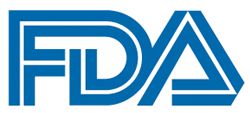Direct-to-Consumer Test for Hereditary CRC Syndrome Approved by FDA
A direct-to-consumer genetic test has been approved by the FDA for providing a risk report on MUTYH-associated polyposis, a hereditary colorectal cancer syndrome, according to 23andMe, the personal genetics company that manufactures the test.<br />

A direct-to-consumer genetic test has been approved by the FDA for providing a risk report on MUTYH-associated polyposis, a hereditary colorectal cancer (CRC) syndrome, according to 23andMe, the personal genetics company that manufactures the test.
The approval will allow the company to report on the 2 most common genetic variants that influence MUTYH-associated polyposis. Upon its release, the test will be offered to new and existing customers of Health + Ancestry Service. The MUTYH-Associated Polyposis Genetic Health Risk report included ≥99% accuracy and utilization of key informational concepts that achieved ≥90% comprehension in a demographically diverse population.
“We are committed to giving people affordable and direct access to important health information that can impact their lives,” said Anne Wojcicki, 23andMe CEO and co-founder. “We believe improved access to genetic testing and health information will help people engage in their own health.”
This decision follows theFDA’s authorization in March 2018 for 23andMe’sBRCA1/BRCA2(Selected Variants) Genetic Health Risk report. The FDA included both this report and 23andMe’s previously authorizedBRCA1/BRCA2(Selected Variants) Genetic Health Risk report in a single “Cancer Predisposition Risk Assessment System” regulation. The BRCA1/BRCA2(Selected Variants) Genetic Health Risk report tests 3 selected variants in theBRCA1andBRCA2genes:BRCA1185delAG,BRCA15382insC, andBRCA26174delT.
The MUTYH-Associated Polyposis report was submitted to the FDA using the 510(k) submission pathway, enabled by the BRCA decision. These two reports are the only direct-to-consumer genetic health risk reports for inherited cancers that have been authorized or cleared by the agency for use without prescription, the company stated in a press release.
Similar to theBRCA1/BRCA2report, customers of the service must choose whether or not they want to receive this information. The report will also include an education module with information on the risk report, its limitations, and how to interpret the results.
Hereditary colorectal cancers account for approximately 5% of all CRC cases. Additionally, the approved report does not examine variants associated with Lynch syndrome, which is the most common form of inherited CRC. The two variants included comprise an estimated 80% to 90% of MUTYH variants in people of Northern European descent. However, ≥100 variants in theMUTYHgene are known to be linked to MUTYH-associated polyposis.
The two variants included in the 23andMe MUTYH-Associated Polyposis Genetic Health Risk report are most prevalent in people with Northern European ancestry at between 1% and 2%, but have also been identified in those of other ethnicities.
Harboring both variants or having 2 copies of one of them increases an individual’s risk of developing CRC to between 43% and 100%. The risk for individuals who have 1 variant is uncertain; however, data suggest that the risk of CRC may be slightly increased, particularly for those with a family history of CRC.
This clearance follows research conducted by 23andMe that has led to 4 separate FDA de novo authorizations for direct-to-consumer genetic tests for carrier status, genetic health risk reports, select BRCA1andBRCA2variants, and pharmacogenetic reports. Each authorization included an extensive FDA review process, in which the company submitted data demonstrating that our reports are scientifically valid and comprehendible for consumers, and that the results are analytically reliable.
Reference:
23andMe Receives FDA Clearance for Direct-to-Consumer Genetic Test on a Hereditary Colorectal Cancer Syndrome. 23andMe. Published January 22, 2019.https://bit.ly/2S56mRN. Accessed January 22, 2019.
Retrospective Data Demonstrates Efficacy of Regorafenib in mCRC
April 16th 2024During a Case-Based Roundtable® event, Madappa Kundranda, MD, PhD, discussed recent retrospective studies that compared outcomes between the available treatment options in patients with relapsed/refractory advanced colorectal cancer in the first article of a 2-part series.
Read More
Peritoneal RFS May Be a Stronger Predictor of OS in CRC Peritoneal Metastasis
March 27th 2024In an interview with Targeted Oncology, Muhammad Talha Waheed, MBBS, discussed research on the reliability of using recurrence-free survival as an efficacy end point for trials evaluating patients with colorectal cancer peritoneal metastasis.
Read More
Study Finds Susceptibility Gene Variations by Race/Ethnicity in Early-Onset CRC
February 20th 2024In an interview with Targeted Oncology, Andreana N. Holowatyj, PhD, MSCI, discussed data from a study which found racial and ethnic differences in susceptibility genes for early-onset colorectal cancer, suggesting current multigene panel tests may not be accurate for diverse populations.
Read More